

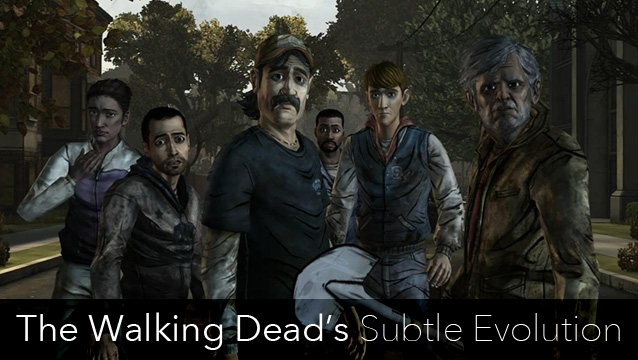
Telltale's adaptation of The Walking Dead into the adventure game genre was always going to have internal tension. The slow pace of a normal adventure could never match the shocking violence of the a zombie story, so shooting and quick-time events are included. One of the major themes of the source material is that the apocalypse forces difficult choices, hence the inclusion of tough moral and practical choices for the player to make.
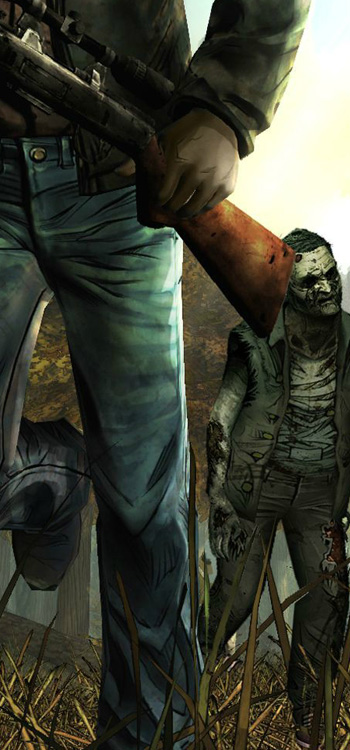 These three components—dialogue, action, and adventure—existed in an uneasy alliance through the first few episodes of The Walking Dead. While the dialogue and tough decisions were praised from the beginning, the more traditional “gameplay” sequences were tolerated at best, and sometimes even considered a waste. It's certainly true that The Walking Dead isn't satisfying as a traditional puzzle-based adventure, nor as an action-packed thrill ride.
These three components—dialogue, action, and adventure—existed in an uneasy alliance through the first few episodes of The Walking Dead. While the dialogue and tough decisions were praised from the beginning, the more traditional “gameplay” sequences were tolerated at best, and sometimes even considered a waste. It's certainly true that The Walking Dead isn't satisfying as a traditional puzzle-based adventure, nor as an action-packed thrill ride.
Yet I would still argue that the slow adventure sections and the intense action sequences are necessary in pacing The Walking Dead properly. The dialogue sequences work because they punctuate the rest of the game. Solve a puzzle, catch your breath, move on to next tense choice. The action sequences offer a different pacing option, while also stressing the importance of the choices you make within the context of the game world.
Over the course of the year, Telltale improved in combining the three different forms, helping the later episodes gain in dramatic power. The balance between the three parts of the game shifted in a way that, I believe, indicates that the developers understood what made their game work, and shifted its form to accentuate its best aspects. (Incidentally, the episode release format makes this possible, where serialized improvement would have been impossible had the whole thing been developed and released at once.)
There are a few different moments which illustrate the rebalancing of the game components over the course of the series. (Please note: this will include some general description of events from each episode, but no specific character-based details.)
In the third episode, there's an extended action sequence in which you have to fight off waves of attackers. While that episode, “Long Road Ahead,” was often cited as one of the very best due primarily to its handling of extreme emotions, the length and relative difficulty of the shooting sequence was its biggest flaw—it went on long enough that House Of The Dead comparisons started to become appropriate.
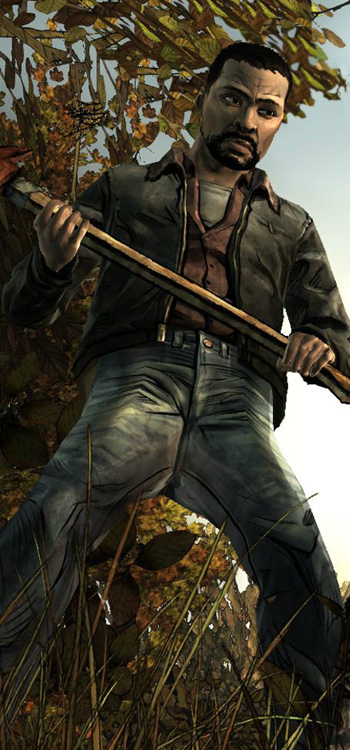 The next installment, “Around Every Corner,” spread its action sequences through the episode. Instead of one shooting gallery lasting several minutes, it had multiple shorter sequences of 30 seconds or less. They successfully demonstrated the necessary danger, but they didn't become the focus of the game. This culminated in the best fighting moment, late in the final episode, in which Lee crosses a street of zombies like a total badass. It's designed to be easy—I was never threatened—but it conveys the moment's danger and violent intensity beautifully.
The next installment, “Around Every Corner,” spread its action sequences through the episode. Instead of one shooting gallery lasting several minutes, it had multiple shorter sequences of 30 seconds or less. They successfully demonstrated the necessary danger, but they didn't become the focus of the game. This culminated in the best fighting moment, late in the final episode, in which Lee crosses a street of zombies like a total badass. It's designed to be easy—I was never threatened—but it conveys the moment's danger and violent intensity beautifully.
The shift in the adventure sequences was more dramatic and even more important. In the first three episodes, there were extended “puzzle” sequences—trying to find a key to a pharmacy, or or figuring out how to move an obstacle blocking your path. The most frustrating to me took place in episode two, when the story leads directly to a dinner event, but one character demands that you investigate something, which you have to do. It's not something I felt was totally in-character, and while the puzzle wasn't difficult, it felt like a placeholder that existed to separate the dialogue sequences from one another, as opposed to an integral part of the game.
By the fourth and fifth episodes, the long-form adventure sequences have been replaced by shorter sequences. But these moments aren't shorter “puzzles.” Instead, they're simple sequences that force you to take simple, repetitive actions, like, in one powerful scene, slowly filling in a grave by clicking on the dirt, watching the animation, clicking again, then again. Moments like work partially because they ground the player in the game's reality. In taking the action, the player buys into the story. The best moments like this also draw power from ritual and symbolic meaning. We know what digging the grave means, both in a societal sense and in the sense of what just happened to the characters. Taking those slow moments reinforces the meaning to the players. It helps with mood, story, and pacing.
These changes to the action and adventure sequences both made those sections “easier” in terms of traditional game difficulty, but that's a good thing. The true difficulty in The Walking Dead was always the choices that you had to make in the dialogue sequences. By smoothing out the action and adventure sections, Telltale maintained focus on game's strengths. This bodes well for future seasons of the game.




 Five Must-Buy PS Vita Games in 2015
Five Must-Buy PS Vita Games in 2015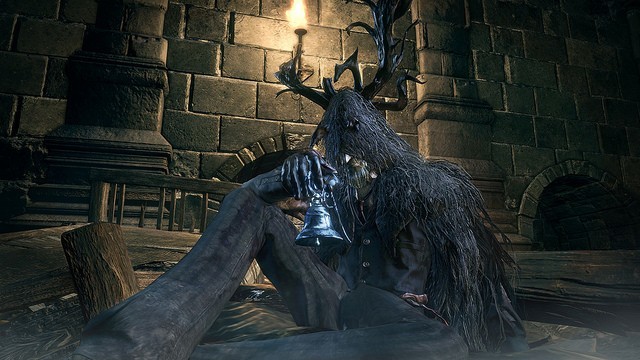 How to Get The Boom Hammer in Bloodborne: The Old Hunters Guide
How to Get The Boom Hammer in Bloodborne: The Old Hunters Guide MotoGP 15 Wiki – Everything you need to know about the game .
MotoGP 15 Wiki – Everything you need to know about the game .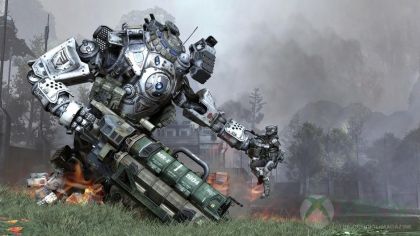 Titanfall Guide to fix Installation errors, sound issues, download problems, crashes, missing texture etc
Titanfall Guide to fix Installation errors, sound issues, download problems, crashes, missing texture etc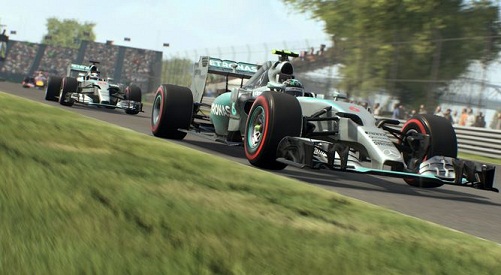 F1 2015 (PC) beginners guide and tips to control
F1 2015 (PC) beginners guide and tips to control